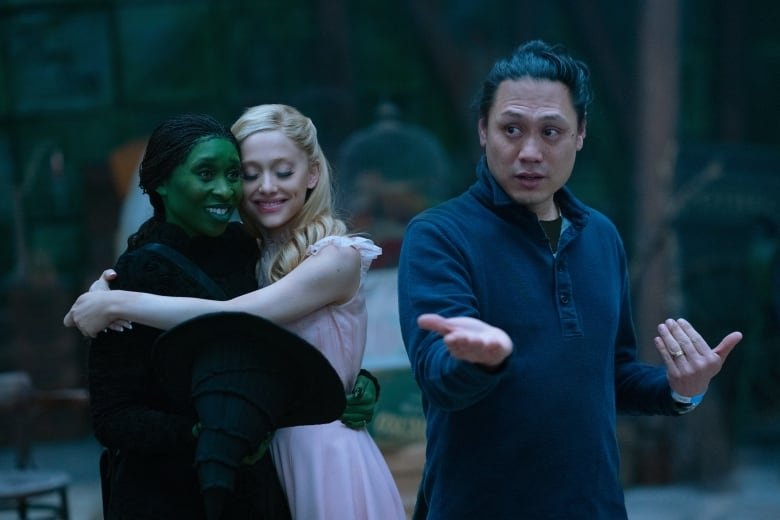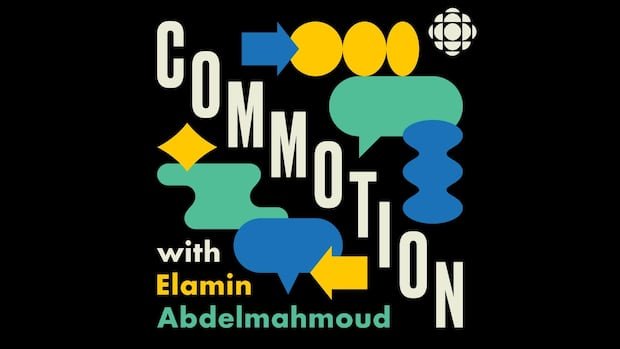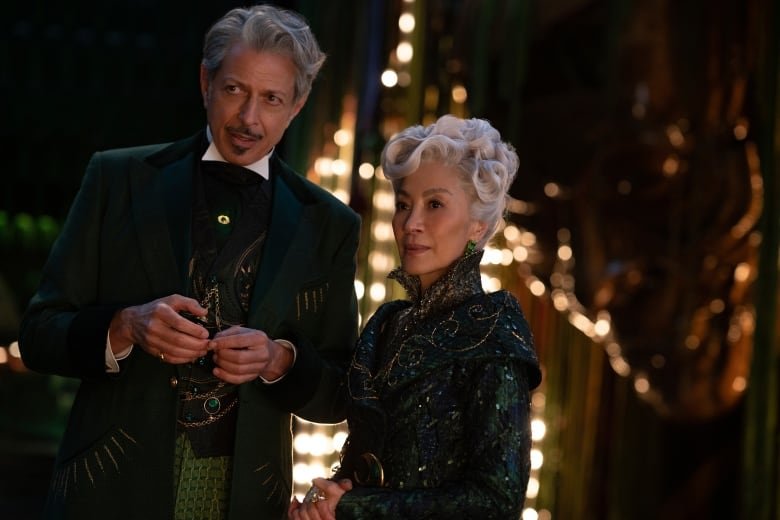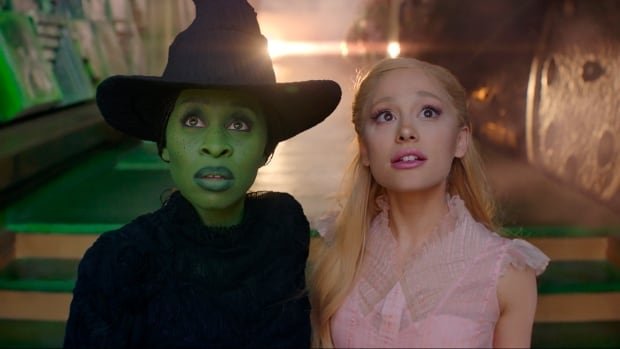With all the related examples in its rearview, it’s understandable to look at Wicked as something of a success.
Even as a wide scope of people continue to profess a hatred for live-action musicals, they have sneakily managed to become a Hollywood trend, and the industry has gotten creative when it comes to smuggling them past audiences. There’s the 2024 Mean Girls remake, whose studio purposefully hid the fact it was a musical as that word has “the potential to turn off audiences.” There’s Apple TV’s Schmigadoon!, a series based on the idea that people hate musicals. And then there’s everything from Emilia Pérez, to Joker: Folie à Deux and even Dear Evan Hansen, each of which tried to suffuse their plots with enough dour realism to erase the bubbly silliness that actually makes musicals work.
So, as far as the Ariana Grande and Cynthia Erivo-led Wizard of Oz send up goes, there’s cause for celebration. Despite its meta-plot and convoluted history, the expanded Broadway adaptation is a relatively straight-down-the-barrel movie musical.
An adaptation of the Gregory Maguire novel Wicked: The Life and Times of the Wicked Witch of the West, the stage production retells the Hollywood classic The Wizard of Oz (itself an adaptation of L. Frank Baum’s novel The Wonderful Wizard of Oz) as a sort of fairytale exposé.
Sure, you’ve heard of Dorothy, Glinda the Good Witch and the Wicked Witch of the West. But do you know the real story?
Wicked plays it straight
The answer here, of course, is no. The real story involves considerably more subterfuge, love triangles and talking animals. And Elphaba (Erivo) is not actually the wicked witch she’s come to be known as.
Instead, it’s a misunderstanding rooted in her friendship with not-so-good witch Glinda (Grande) as they attend the Oz boarding school Shiz Academy and seek support from the mythical Wizard (Jeff Goldblum) for the region’s animals, which have lost both their rights and their ability to speak.
Thankfully, however inspiring or mind boggling a political drama about the Judy Garland Kansas-quest sounds, Wicked plays it straight. There is no ambiguity around what we’re doing here, no self-deprecating jokes or aping of cinematic realism to earn brownie points from wary theatregoers. The choreography is grand, the world requisitely whimsical and expansive.
Director Jon M. Chu seems to be one of the few directors besides Steven Spielberg and Lin-Manuel Miranda to make a Hollywood musical this decade without secretly hating them. Because outside the successes of West Side Story and Tick, Tick … Boom!, most post-Chicago movie musicals feel like they’re being pumped out by reluctant creators embarrassed and ashamed of the product they’re peddling.

Wicked, for its part, is not trying to trick anybody into liking it by hiding what it really is — this is a refreshingly over the top production from tip to tail. That’s no doubt helped by the incredible chops of its stars: Erivo and Grande get more than a few chances to show off their incredible vocal range and power.
And despite early questions around Grande’s ability to inhabit the airheaded earnestness of her character, or Erivo being so self-serious as to attack fans for lightly editing a movie poster, neither get in the way of their own performances.
Grande perfectly transplants her early Family Channel comedic timing, while Erivo disappears into her role in a way that nearly makes you forget you’re watching a mash-up of Zootopia and Shrek set to song.
Part one syndrome
That’s not to say it’s all smooth sailing.
Being one of the most successful live-action Hollywood musicals since Chicago is actually a distressingly low bar to clear. Wicked does barely enough to feel like it meets the expectations of a litany of past musicals that actually were at least slightly innovative and exciting.
The visuals, bizarrely both flat and overexposed, feel like Chitty Chitty Bang Bang with misguided corporate backing, while Grande and Erivo’s occasional tendency to cap songs with unnecessary Mariah Carey runs reads like a hollow pop version of Jesus Christ Superstar.
And though Chu doesn’t make the mistake of entirely filtering Wicked through the lens of standard movie expectations, there are obvious attempts to make it more palatable for the screen.

<p>At this year’s Super Bowl we got a first look at the new Wicked movie. It comes out later this year and it’s the latest installment of one of the longest running shows on Broadway. Wicked experts Stacy Wolf, Quincy Brown and Kevin Bianchi join host Elamin Abdelmahmoud to talk about what makes the show so timeless, and how it changed the landscape of musical theatre for good.</p>
One is the overstuffing of small gags that wouldn’t be visible from a theatre audience’s perspective. This leads to baggy pacing bogged down by frequent and unnecessary asides — unfortunately and most egregiously in Popular, one of Wicked‘s two showstoppers alongside Defying Gravity.
But worst of all is the fact that both those tunes appear here, in the intro of an eventual two-parter. Because Wicked has a bad case of part one syndrome.
Like Dune, its current storyline hardly stands on its own without the coming second half. The flabby momentum inexplicably results in a runtime just five minutes shorter that the stage musical — while only covering half of the story, and excluding an intermission.
At the same time, this first half of the story is handled in a way that is becoming an increasingly large problem in the industry. In one social media-derided review, BBC critic Nicholas Barber complained about the inclusion of a “subplot about magical talking animals” and Elphaba’s sister, Nessarose, who in part one has “perplexingly little to do.”
The smug response to both complaints is that they become integral elements of the conclusion, eventually revealing how Dorothy and the land of Oz became so misled over Elphaba’s actual role in the whole story in the first place. But that conclusion does not yet exist.

While a 15 minute intermission separates the moments before and after Defying Gravity in the Broadway version, there is still a full year remaining until Part Two of Wicked is released.
That means there’s still a full year before we get an explanation for why we’re supposed to care about what appears to be completely irrelevant and unnecessary CGI goats and family members and their various love interests and footwear.
While taking an (expensive) trip to New York to catch Wicked on Broadway, or putting in the (inadvisable) effort of actually reading Maguire’s book could provide answers to those questions, self-contained stories should not require homework — that’s why we’re not watching the Marvel Cinematic Universe anymore.
What is on offer is impressive. It’s a tantalizing taste of a world where movie musicals are actually made for people who enjoy them. At the same time, this is the clear winner in the “Barbenheimer” 2.0 of “Glicked”: the paired-release date of Wicked and the visually and narratively ugly TV movie that is Gladiator II.
So while Wicked does leave a lot to be desired, there’s still a fair bit to enjoy. And hopefully, a sequel that makes the wait worthwhile.




